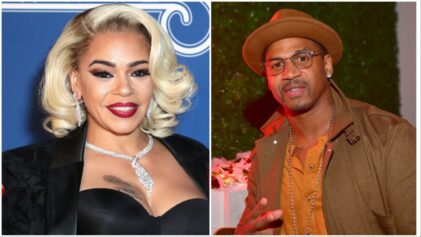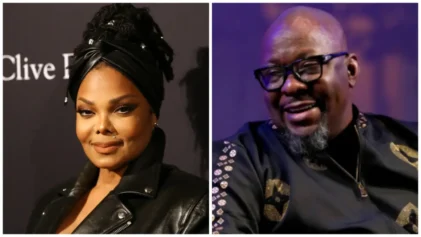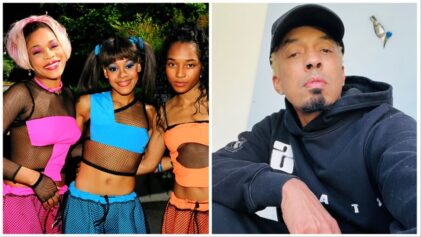Tupac Shakur, who would have been 46 on June 16, to coincide the biopic “All Eyez on Me” will be released that same day . It will be a difficult challenge for filmmakers to delve deeply into the complexities of Tupac from his evolution to devolution. Tupac remains a complicated figure in black art and politics. He is celebrated as a hip-hop figure, who embraced the streets and what he labeled “thug” life, who spoke about revolutionary change and the conditions of oppression. In the end he became his own cautionary tale of someone who lost his balance and tilted over into a world of real gangsters and the unforgiving violence of gun play that the streets can lead you to.
A Child of Revolutionary Beginnings
Tupac was born to a revolutionary family of Black Panthers, from his mother, Afeni Shakur, who was a section leader of the Harlem chapter, to his stepfather, Mutulu Shakur, and godfather, Geronimo Pratt. Theis beginning provided the foundation for who Tupac was throughout his short, but fully lived life.
In 1970, during her trial, Afeni Shakur was standing in front of the courthouse in New York where she was being prosecuted for crimes she didn’t commit.” They are fixing to give us 75 years,” Afeni said after the indictment in 1969 of the Panther 21. “But I’m a revolutionary and I know that if I go, there will be someone to come after me.”
Each of the 21 Panthers were charged with 30 counts of conspiracy. Shakur had become the first Black woman to ever be held on $100,000 bail in New York City. Civil rights lawyer William Kunstler was prepared to defend them, but his duties as chief of defense in the conspiracy trial of the Chicago Seven called him away and he had to give up the case. Carol Lefcourt, the defense attorney that took his place, had a tiny, squeaky voice. Afeni thought aloud: ‘Hell no, she can’t represent me. The judge won’t be able to hear her object.”
After Afeni read Fidel Castro’s “History Will Absolve Me”, she decided to represent herself and the other Panthers.
Several groups of women, white and Black, raised the bail money to get her out. While out on bail, she got something that she had longed for since she had become an adult. She became pregnant by New Jersey truck driver William Garland. She had been trying to have a baby for years. But when her bail was remanded after two of her co-defendants absconded, she went back to prison. She had to fight daily for an egg and a glass of milk to nourish her growing baby.
The trial would last nine months and Afeni continued to diligently and brilliantly defend herself and party members. “Let history record you as a jury that would not kneel to the outrageous bidding of the state. Show us that we were not wrong in assuming that you would judge us fairly. And remember that that’s all we’re asking of you. All we ask of you is that you judge us fairly. Please judge us according to the way you want to be judged,” Afeni said during her closing arguments. All of the Panthers were acquitted on 156 counts in a jury deliberation that lasted less than 20 minutes. One month later she gave birth to her only son Tupac.
Young Pac – Revolutionary and Artist
When Tupac was ten years old when asked by a minister what he wanted to be when he grew up he gave the simple answer: a revolutionary.
When he got in trouble Afeni ordered him to read the New York Times cover to cover. When he and his mother moved from the Bronx to Baltimore when he was 14, he came to the city with the rap moniker, MC New York and won a rap contest sponsored by the Enoch Pratt Library.
She instilled in him his revolutionary spirit, but also the ability to shape shift in his artistic career. He auditioned for School for the Arts as Walter Lee from Lorraine Hansberry’s “A Raisin in the Sun” and his charisma won him a space at the school where his interests varied from taking ballet to acting and rapping. He became good friends with Baltimore mayor Kurt Schmoke’s son Gregory Schmoke, Jada Pickett, and Jasmine Guy. Pinkett and Guy would later come to court every day when he was on trial for rape.
He related to Vincent Van Gogh because he said: “people didn’t understand him.” He could read and recite from memory Edgar Allen Poe, ancient Chinese philosopher Lao Tzu and Shakespeare. He was a movie and music enthusiast with wide ranging taste from LL Cool J to Peter Gabriel, from Terms of Endearment to The Godfather.
He always wanted to help people. When a kid was shot and killed in Baltimore, his mother didn’t have enough money to bury him, so Tupac organized a benefit to raise money for his burial. During this time something else happened in Baltimore, his mother steadily became addicted to crack and they struggled financially.
He wouldn’t finish at School for the Arts, leaving his junior year. He and his mother moved again, this time to Northern California, where he would later get his start with in his rap career with the group Digital Underground.
The Dilemma of Being Pac
When he embarked on his solo career, he brought his complexity and broad interests into his lyrics. He was the same rapper that could sing about the horrors and loneliness of teenage pregnancy in “Brenda’s Got a Baby,” turn around and shun commitment to any one woman in “I Get Around” and come back to celebrate and uplift black women in “Keep Ya Head Up.” He could write a love letter to his mother on “Dear Mama” and curse out everybody and their mama in “Hit Em Up.”
By the early 1990s, hardcore West Coast rap was stealing the thunder from up under East Coast rappers and Tupac wanted a part in it. In 1992, he starred as the heartless character Bishop who kills his best friends in the movie Juice. He played the part to the hilt, his character was so eerily on point that it left some fans to wonder if there was a part of him that was Bishop. On the set, he predicted to the producer that in ten years he wouldn’t be alive. By the release of the album, Me Against the World in 1994 he had doubled down on nihilistic lyrics with songs like “If I Die 2 Nite” where he rapped: I run in these streets and puffin’ weed wit my peeps/I’m ducking the cop/I hit the weed as I’m clutching my glock.
He was becoming increasingly reckless—with money, with women, with himself. He had an AK-47 tattoo and a tattoo across his stomach that read THUG LIFE, an acronym, he said for: The Hate You Gave Lil Infants F—k Everybody.
That same year he was shot five times at Quad studios in Manhattan, twice in the head, twice in the groin and once in the hand. He understandably became paranoid, lashing out at any and every one he thought may have been involved. No one was charged in his shooting. The shooting occurred a day before the verdict in his sexual assault trial, where he was found guilty of sexual abuse. Then Suge paid $1.4 million bail to get him out of prison, pending his appeal, and his spiral downhill sped up quickly.
His enraged lyrics were becoming increasingly bitter and irrational on songs like “Wonder Why They Call You B—h.” His rap lyrics were becoming less politically conscious and more in line with the street, gangsta image of Death Row. He fell out with everyone, including Biggie and Bad Boy, Nas, Jay-Z, Mobb Deep and the Fugees.
By the time he had become disillusioned with Death Row and realized he had made a deal with the devil, it was too late to turn back. He became increasingly prolific, putting out as much work as he could, hoping to get off of the label.
But there was no getting out of Death Row’s violent grasp.
After the heavyweight fight between Mike Tyson and Bruce Seldon in Las Vegas, on September 7, 1996, Tupac planned to party at Suge’s nightclub 662. At a stoplight 13 bullets were fired into the car that Suge was driving with Tupac as the passenger. This time he wouldn’t survive.
Tupac wasn’t just a rapper or an artist, a romantic, or an actor, or an activist and revolutionary. He was the rare person that embodied all of these characteristics. When we see what the best and the brightest from hip hop’s golden age have done since the 1990s, we can only wonder what kind of force Tupac would have become today.
In his only 25 years on Earth, he amassed tens of millions in record sales; 4 studio albums, 6 posthumous studio albums, acted in six movies and wrote hundreds of poems and lyrics. There was the flip side—arrests for assaults and a prison term for sexual assault. And still another side like when he courted Quincy Jones’ daughter Kidada Jones, he sent her an original poem daily along with a rose.
We will see if the film, All Eyez on Me, due out Friday is able to capture as many sides of Tupac as can be fit into a 2-hour window. A month after the film wrapped, Afeni Shakur would die of heart failure. But she had given the best critical review the film could get — her blessing.


